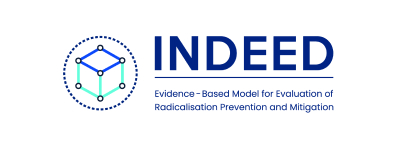In the criminal justice field, it is crucial that professionals receive adequate and high-quality training in order to perform their jobs effectively and efficiently. However, training opportunities in this context have inherent difficulties, such as the challenges of bringing in an outside trainer or the need for professionals to travel from their workplace to receive training. Moreover, criminal justice professionals have demanding jobs with time-sensitive tasks, making it challenging for them to find time during work hours to attend training.
Increasing organisational training capacity
The Train-the-Trainer model is based on Malcolm Knowles’ Adult Learning Theory and Everett Rogers’ Diffusion of Innovation Theory. Knowles’ theory asserts that the best learning resources come from peers, while Rogers’ theory states that information is better internalised if transmitted by individuals close to the trainees’ social networks. Therefore, when training is provided by a colleague or team member, learners find it easier to relate to and use the information and skills acquired in their daily work.
The Train-the-Trainer approach ensures the continuity of initial training. Once these professionals acquired sufficient knowledge, they will perform a cascade-type training with their colleagues. This means that the process can reach a larger audience without the need to train many professionals in the first stage. This approach allows organisations to develop their internal training capacity with broad training curricula and opportunities without needing to resort to external trainers, leading to a more prepared institution.
A convenient, effective, and networking-promoting approach
With training solutions inside the organisation and among peers, it is easier to coordinate the sessions within the work schedule of criminal justice professionals. Therefore, it represents a more cost-effective and convenient means to train professionals.
Moreover, peer-led training provides the advantage of a shared context, where the trainer has a greater familiarity and understanding of their colleagues’ knowledge, needs and skills. This strategy allows professionals to adapt and improve the training, further providing a better-tailored and practical curriculum to their peers.
In addition, the Train-the-Trainer model can promote networking within the organisation, creating opportunities for future collaboration and partnerships between individuals.
Adaptability to other fields and dissemination of skills
Studies have shown that Train-the-Trainer programmes can be an effective way to disseminate knowledge and information in several fields including medicine, mental health, childcare, and law enforcement. A study with public health trainees comparing learning through this strategy versus regular training, found few differences in learning outcomes, indicating that the Train-the-Trainer strategy can work as efficiently as traditional training. Moreover, it showed that 88% of these trainees agreed to have acquired knowledge on a new subject, and 62% agreed with being able to adapt the training to the trainees’ needs while keeping it evidence-based.
Contributing to improving European skills
Train-the-Trainer programmes are a valuable approach that contributes to the development of European skills since they can help trainers develop a broader range of skills and competencies. They can promote the transfer of knowledge and skills across different sectors and industries, which is crucial in supporting the development of a diverse and adaptable workforce and addressing skills shortages at the European level.
Empowering professionals to become trainers themselves, ensures continuous and sustainable training, leading to better-prepared, more effective and efficient justice systems.
Enhancing skills in the radicalisation prevention field
The HOPE ‘Holistic Radicalisation Prevention Initiative’ project includes a Train-the-Trainer model that focuses on enhancing trainers’ skills, promoting expertise sharing, and building training capacity within their organisation.
Targeting prison, probation, and community organisations, the initiative is helping to enhance the skills of professionals working with individuals vulnerable to radicalisation.
Furthermore, HOPE places a heavy focus on networking and knowledge-sharing between organisations and their professionals through the HOPE Radicalisation Network, an online hub serving as a central resource repository and discussion space.
The HOPE “Holistic Radicalisation Prevention Initiative” is led by IPS_Innovative Prison Systems (Portugal) in partnership with the University College of the Norwegian Correctional Service, Agenfor International Foundation (Italy), the Euro-Arab Foundation for Higher Studies (Spain), the Bulgarian Association for Policy Evaluation, the General Directorate for the Execution of Sentences (Bulgaria), the Bucharest-Jilava Penitentiary (Romania), the Helsinki Committee for Human Rights (Serbia) and the Slovenian Probation Administration.
For more information about the HOPE project, please visit www.hope-radproject.eu
References:
Becan, J. E., Crawley, R. D., & Knight, D. K. (2019). Using a Train-the-Trainer Model to Promote Practice Change among Agencies Serving Justice-Involved Youth. Federal Probation Journal, 83(3).
de Beurs, D. P., de Groot, M. H., de Keijser, J., Mokkenstorm, J., van Duijn, E., de Winter, R F. P., & Kerkhof, A. J. F. M. (2015). The effect of an e-learning supported Train-the-Trainer programme on implementation of suicide guidelines in mental health care. Journal of Affective Disorders, 175, 446-453.
Lanterman, J. L. (2019). Training partner selection and quality assurance in restorative justice for the criminal justice setting. Contemporary Justice Review, 23(4), 544-562.
Pearce, J., Mann, M. K., Jones, C., van Buschbach, S., Olff, M., & Bisson, J. I. (2012). The Most Effective Way of Delivering a Train-the-Trainers Program: A Systematic Review. Journal of Continuing Education in the Health Professions, 32(3), 215-226.
Tobias, C. R., Downes, A., Eddens, S., & Ruiz, J. (2012). Building Blocks for Peer Success: Lessons Learned from a Train-the-Trainer Program. AIDS Patient Care and STDs, 26(1), 53-59.
Yarber, L., Brownson, C. A., Jacob, R. R., Baker, E. A., Jones, E., Baumann, C., Deshpande, A. D., Gillespie, K. N., Scharff, D. P., & Brownson, R. C. (2015). Evaluating a train-the-trainer approach for improving capacity for evidence-based decision making in public health. BMC Health Services Research, 15(547).
Know more about this project

HOPE
Holistic Radicalisation Prevention Initiative (Balkan countries)
HOPE is led by IPS_Innovative Prison Systems (Portugal) in partnership with organisations from several countries, namely the University College of Norwegian Correctional Service (Norway), Agenfor International Foundation (Italy), the Euro-Arab Foundation for Higher Studies (Spain), the Bulgarian Association for Policy Evaluation (Bulgaria), the Bulgarian General Directorate “Execution of Sentences” (Bulgaria), the Bucharest-Jilava Penitentiary (Romania), the Helsinki Committee for Human Rights in Serbia (Serbia) and the Slovenian Probation Administration (Slovenia).
For more information about the HOPE project and the HOPE Radicalisation Prevention Network, go to www.hope-radproject.org
Related projects

CEDAR
Continuing Education Against Radicalisation

EUTEx
Developing a European framework for disengagement and reintegration of extremist offenders and radicalised individuals in prison

IN2PREV
Law enforcement and community cooperation and training approach to prevent radicalisation by ensuring refugees’ successful inclusion

INDEED
Strengthening a comprehensive approach to preventing and counteracting radicalisation based on a universal evidence-based model for evaluation of radicalisation prevention and mitigation

INTEGRA
Integrated Community, Probation and Prison Services Radicalisation Prevention Approach

MIRAD
Multi-Ideological Radicalisation Assessment towards Disengagement

PARTES
Participatory Approaches to Protecting Places of Worship

PRACTICIES
Partnership against Radicalisation in Cities

R2COM
Radicalisation and violent extremism prevention in the community

R2PRIS
Radicalisation Prevention in Prisons
Related news

Empowering communities to support integration: a first step in preventing radicalisation
Read More »
“EU Knowledge Hub on Prevention of Radicalisation”: European Commission Launches a €60 Million Initiative for the next 4 years
Read More »





